
https://youtu.be/rVL79DvfAyA?si=SBIsD9-aaWLEutw0
Keto And High Blood Pressure – Dr.Berg
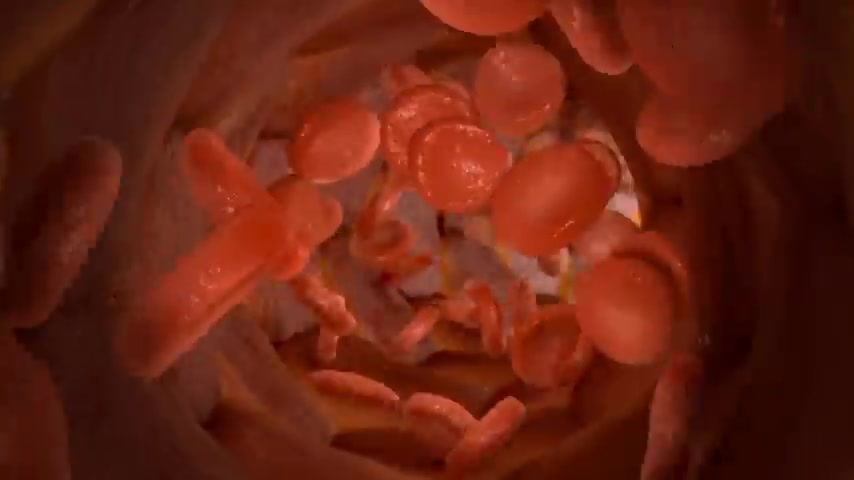
Hey , guys .
Today , we're gonna talk about keto and blood pressure .
Probably should add in there IF intermittent fasting as well .
Now typically , people have this idea that high blood pressure is caused by consuming too much sodium or salt .
Right ?
Because a lot of times all their processed foods are really high in sodium .
And , yes , that's gonna increase more volume of fluid because salt retains water and therefore increasing your blood pressure .
Okay ?
But people can then be put in a diuretic , pull the fluid out , and then lower their blood pressure .
So 1 point I wanna bring up is the relationship between sodium and the opposing mineral potassium .
They both work together .
Okay .
And we need 4 times as much potassium as we do sodium .
So what does that mean ?
It means that if you want to lower sodium , you wanna increase your potassium .
Okay .
Because that's automatically gonna give you the ratios that you need .
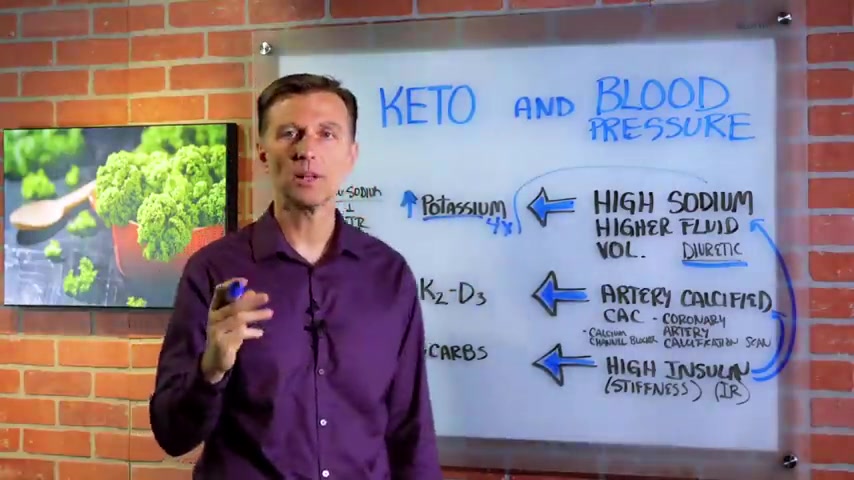
Rather than try to lower your sodium okay .
Yes .
You can do sea salt which I recommend , but you'd be much better off increasing your potassium .
And 1 of the reasons is because potassium automatically will help you lower blood pressure or normalize blood pressure .
And most people do not consume enough potassium rich foods , and I'm not talking about bananas .
I'm talking about leafy greens .
The average person consumes 1.6 cups of vegetable per day .
We need at least 7 cups to hopefully maybe even 10 if you could actually do that , and that would actually give you a lot closer amounts for your potassium and you'll find your blood pressure come down .
And I'm gonna put a link down below that shows an incredible paper on the relationship between increasing your potassium and lowering blood pressure .
Alright .
Let's talk about scenario 2 .
Let's say the artery is calcified .
Well , that is gonna increase blood pressure because you have hardening of the arteries .
You have plaquing .
A great test to determine that would be a coronary artery calcification scan .
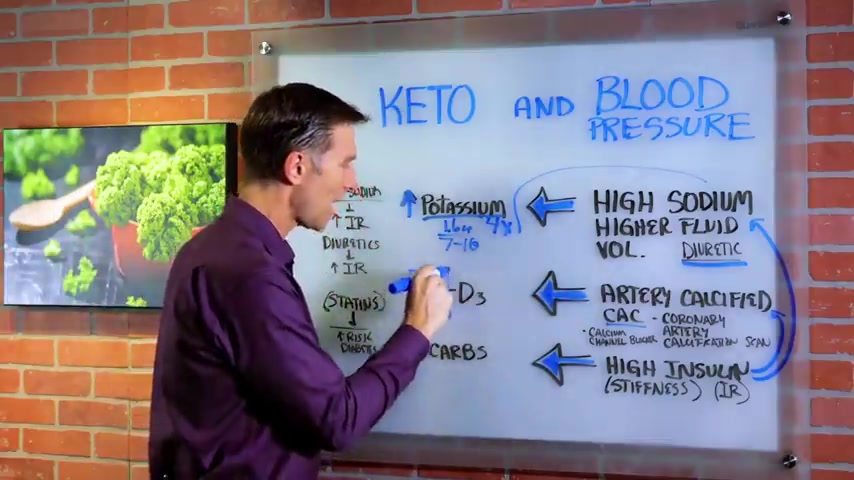
Very important to be able to detect if you have any calcification going on there .
Now there is an interesting nutrient called vitamin k2 that works with d 3 that helps decalcify the arteries .
It helps remove excess calcium from either the joints or the arteries and puts it in the place where it should be in the bone , and this actually comes from fatty foods , grass fed meats or dairy , which is very interesting .
Now you can also get it from NADO , which is a fermented , soybean , but I find it interesting that the actual vitamin in fatty foods has the remedy to decalcify or protect the arteries from accumulating too much calcium .
And a lot of people are on a medication that blocks calcium to prevent this .
It's called a calcium channel blocker .
And the last scenario which is probably the most common is a situation where you have high insulin .
If your insulin is too high , your arteries are gonna become stiff .
Okay .
And your blood pressure will go up .

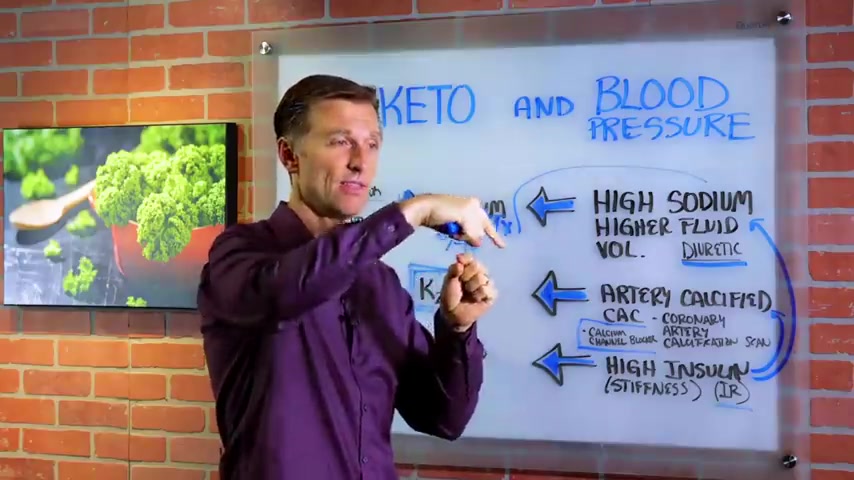
This is associated with insulin resistance because when you have too much insulin , that means you're consuming too many carbs or eating too frequently .
It's gonna eventually create a situation where your your insulin's gonna , be resisted in the receptor and that feedback loop is gonna cause your body to make a lot more insulin than you should .
Of course , no 1 ever tests the insulin , a fasting insulin test or even an insulin test that , would be measuring how much insulin spike after you eat , post a meal , let's say 2 or 3 or 4 hours .
Now that test would be incredible , but it's rarely done .
The point is that when you have high insulin , you're gonna have high blood pressure .
Okay .
And so the solution would be to decrease your carbohydrates .
Okay .
Another interesting point would be when people are on medication for high blood pressure , they're usually on medication to lower cholesterol .
Okay ?
They're on a statin .
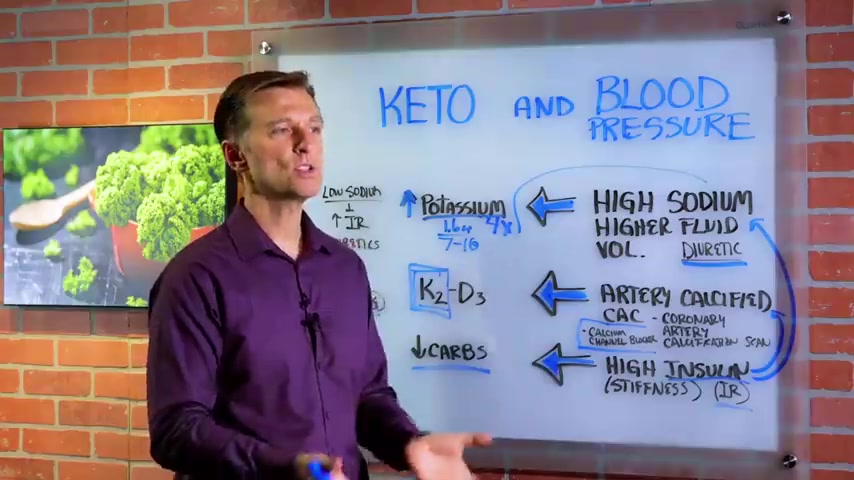
And 1 of the risk factors for statins is diabetes and insulin resistance and elevated insulin .
So it worsens diabetes because it adds more insulin .
Diabetes type 2 is a situation you have too much insulin and too much blood sugar , but the side effect from statins basically worsens this situation right here .
Okay .
Keeping the blood pressure going , so you have to keep maintaining this condition , never fixing it fully but just managing it .
Now , the diuretics that you're taking over here have a side effect too and that would also be increased risk for insulin resistance and diabetes and higher levels of insulin .
Here we go .
Right here .
Feeding the machine right here .
Right ?
And then to put the icing in the cake , which I'm not I don't wanna talk about cake , is that you're gonna retain sodium when your insulin is high and your blood sugars are high because you're doing so many carbohydrates .
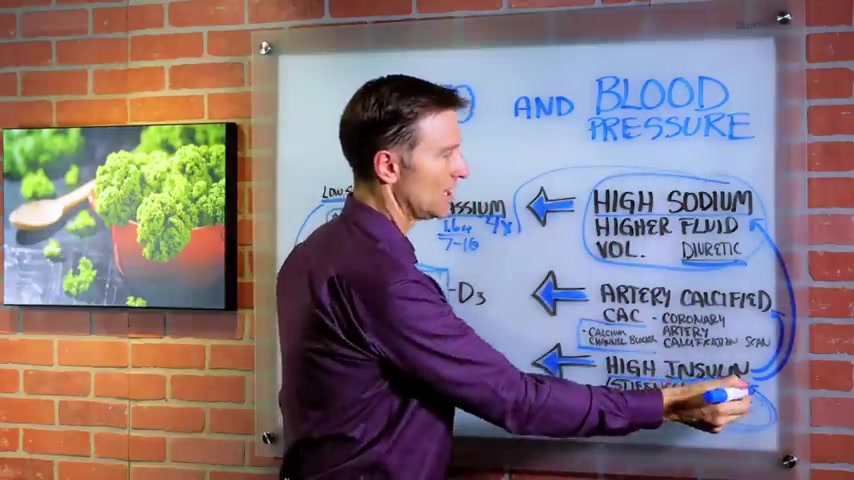
So I believe this situation , especially if you're not consuming a lot of sodium is being directly caused by this situation .
So this is causing this , which is probably creating an imbalance with your potassium too .
And by the way , increasing your potassium will actually help lower your insulin and improve insulin resistance .
A calcified artery usually comes after a chain reaction from damage from high sugar because the calcium and the cholesterol that's making the plaque usually is triggered by a situation of damage in the artery wall usually coming from high sugar and high levels of insulin .
So again , this is causing this .
So if you were to lower your carbs , you're instantly gonna , lose a lot of fluid .
And if you lower your potassium , you will not only help with this situation , but you also help with the root cause as well .
Alright .
And thank you so much for watching .
I'll see you in the next video .

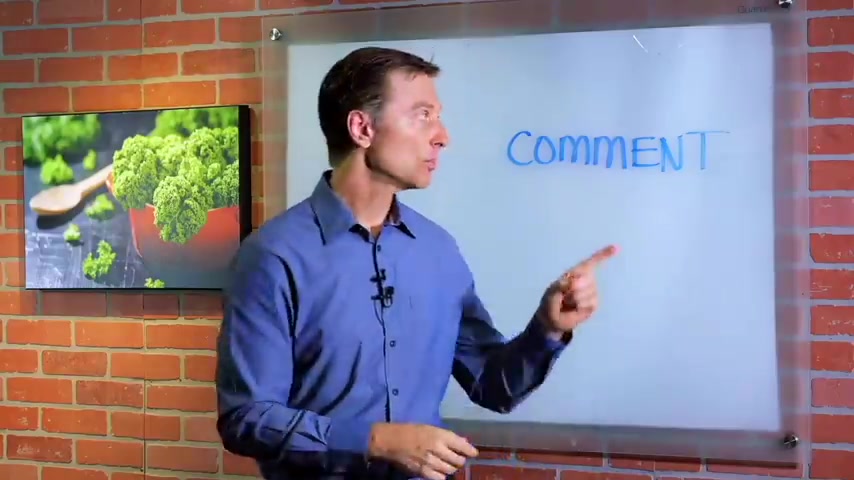
So I wanna know about what you think about this video .
So please comment below and tell me what you think .
Are you looking for a way to reach a wider audience and get more views on your videos?
Our innovative video to text transcribing service can help you do just that.
We provide accurate transcriptions of your videos along with visual content that will help you attract new viewers and keep them engaged. Plus, our data analytics and ad campaign tools can help you monetize your content and maximize your revenue.
Let's partner up and take your video content to the next level!
Contact us today to learn more.